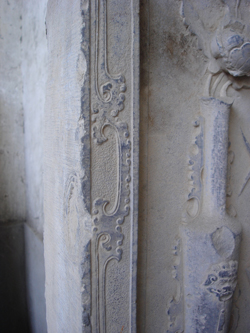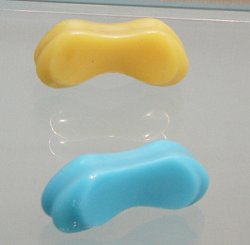Delicately formed objects invite fine observation and handling. They encourage sensitivity to the effects of force and the quality of gestures. This wall carving is a decorative portion of a Jiangnan household. The technique is everyday, workman-like, and not excessive in the investment of effort. Tucked into the side of a wall, this would have been appreciated in passing. Small objects such as these chopstick rests were made less for their usefulness than for the pleasure they gave to touch – within everyday use, one performed a small dance of texture, temperature and weight. Such small moments might raise a smile, lend lightness to a step, persuade us to water flowers, tolerate children, eat fresh food, or notice the despondency of a lonely neighbour. Ultimately antithetical to violence, this pattern of behaviours suggests an ethical rationale for everyday elegance. | | 

Doorway carving, Zhejiang
18th or 19th century
Collection of Hu Xiangcheng
| 

Glass chopstick rests
Qing Period (1644-1911)
Palace Museum, Beijing
|